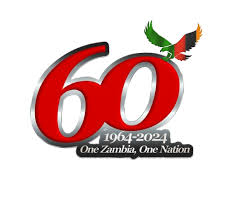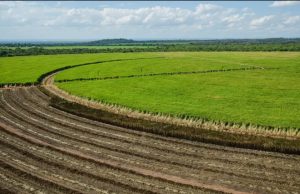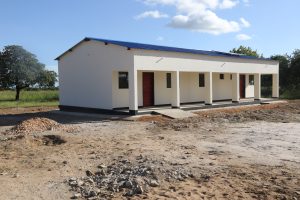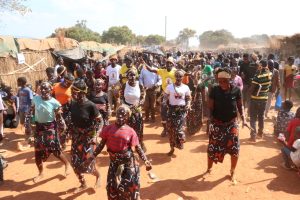By Clara Kawimbe
Zambia, a landlocked country in southern Africa, is no stranger to the harsh realities of a drought; The 2023/2024 farming season, has seen the nation grapple with one of its worst droughts in decades, leaving a trail of withered crops, parched landscapes, and a populace struggling to survive.
The effects of this climate calamity have been far-reaching, impacting not only the agricultural sector but also the livelihoods of millions of Zambians who depend on the land for their sustenance.
As the drought’s grip on the country tightens, the Zambian government, international organizations, and local communities have been forced to confront the challenges head-on.
From emergency food aid and water distribution to innovative agricultural solutions and climate-resilient infrastructure, a multifaceted response has emerged to mitigate the disaster’s impact.
This feature article delves into the heart of Zambia’s drought response, exploring the successes, challenges, and lessons learned in the face of this unprecedented crisis.
Through the stories of those on the frontlines, farmers, policymakers, the church, and citizens, we examine the complex web of factors driving this disaster and the bold steps being taken to build a more resilient future for Zambia.
On 29th February 2024, President Hakainde Hichilema declared the drought a national disaster and emergency.
9.8 million people in 84 districts across the country have been affected, with 6.6 million in need of immediate humanitarian lifesaving assistance.
John Lijimu, Country Director for Integrated Governance and Development Network says Members of Parliament need to play their legislative role of advocacy for the people in drought response.
Mr. Lijimu suggested that Members of Parliament should initiate drought management plans from the National Assembly of Zambia that will yield lasting solutions to help mitigate the impact of the drought.
“MPs in their respective constituencies need to come up with comprehensive drought management plans that involve forming smaller cluster focus groups within communities to find lasting solutions to this drought. We want to see sustainable development of infrastructure in agriculture and enhanced early warning systems to avoid such calamities in future,” Mr. Lijimu said.
On July 29, 2024, Parliament Broadcasting and Zambia National Broadcasting Services in Partnership with BBC media Action held a National debate dubbed, “The Role of Members of Parliament in Drought Response.
During the debate, citizens who included affected farmers, students from higher learning institutions, and community members drawn from various provinces expressed their concerns about the response to the drought.
Enock Mwendabai a farmer in Mongu district of Western province said the drought has negatively impacted his farming activities as he had invested a lot and harvested a little.
Mr Mwendabai was concerned about the effects that the drought had on people in his area and wondered what the government plans were concerning the small-scale farmers that have lost their crop due to the drought.
“Despite this calamity, I have not received any support from the government, but it seems that there are some who might have accessed the relief food,” he lamented.
He added that there is an urgent need for the government to put up long term measures that will cater for all affected households in Mongu, and the country at large.
The debate panel comprised Mr Joseph Munsanje, Mbabala MP, Ms Brenda Nyirenda, Lundazi MP, and Head of Program at the Norwegian Church Aid Ms Isabel Mukelebai who shared their views on tackling the drought.
Mr Musanje whose constituency has a population of about 90 ,000 people described the situation in Mbabala area, in Choma District of Southern Province, as dire saying people do not have food, water and livestock was equally at stake.
The lawmaker however explained that the government through Disaster Management and Mitigation Unit (DMMU) has started the distribution of relief food to Mbabala constituency in Choma district.
To break the cycle of drought, the people of Zambia expect long-term solutions to be implemented by the government such as climate smart agriculture, water harvesting, and sustainable land management among others.
Lundazi MP Brenda Nyirenda also stated that 98 percent of the population in Lundazi constituency have been hit by hunger adding that the populace is only surviving because of the positive response by the government.
Norwegian Church Aid Head of programme Isabel Mukelebai described the current drought as the waste in decades saying farmers that were dependent on agriculture have no livelihood now.
“This drought has made many people in communities to resort to extreme measures where they are forced to skip meals and, in some cases, people boil certain wild roots for longer hours and then consume it,” she explained.
As Zambia emerges from the shadows of the drought, a new narrative unfolds; one of resilience, innovation, and collective action.
Though the scars of this climate calamity will linger, the nation’s response has sown seeds of hope for a more sustainable future.
By embracing climate-smart solutions, strengthening community bonds, and fostering global partnerships, Zambia can transform its vulnerability into a beacon of climate resilience for Africa and the world, and ensure that none of its 6.6 million people needing food assistance dies of hunger.
The drought may have withered crops, but it has also irrigated a newfound determination to thrive in the face of adversity, and innovating through winter maize cultivation and irrigation farming systems.
It is hoped that as the rains return, Zambia will stand poised for enhanced agro productivity that is more equitable, sustainable, and weather-resistant. The story of Zambia’s drought response serves as a testament to the power of human spirit, determination and a clear call to action in a world increasingly ravaged by climate extremes, as the future depends on the collective efforts to respond to calamity.





